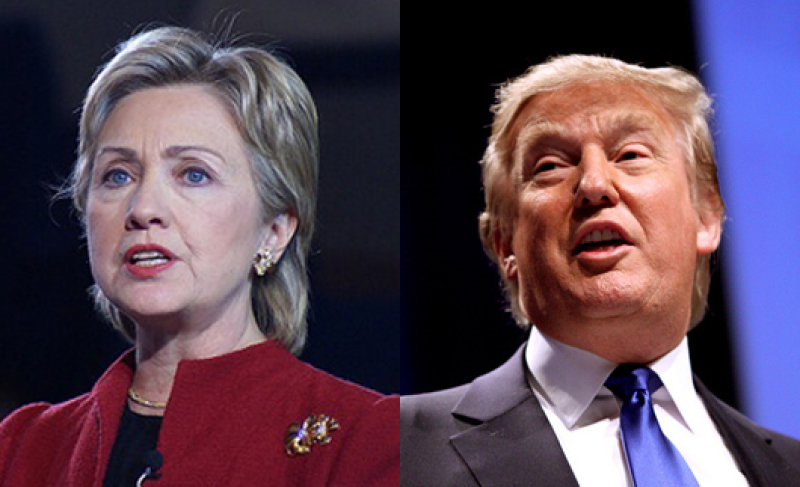
Similar to the findings of several studies, a recent Barna study found that Donald Trump has the lead in the share of evangelical votes compared to Hillary Clinton, but it also found that a large portion of evangelicals also do not want to vote for either.
The study, which explored which segments of voters showed more support for each of the candidates, found that Trump had significantly more support than Clinton among evangelicals (55 percent, compared to 2 percent for Clinton).
However, George Barna, the founder of The Barna Group and a special analyst for the 2016 election, said that the percentage of evangelical voters supporting a Republican candidate would be 20 points lower than it has been in the last five elections if the election were to be held today.
"Although Trump has a huge lead over Clinton among evangelicals, the most noteworthy finding in this regard is that more than four out of ten evangelicals currently refuse to vote for either of those two candidates," Barna said.
"Nearly three out of ten [of evangelicals] are presently undecided, making them the largest bloc of undecided votes still up for grabs," he added. "One out of eight evangelicals plan to protest the quality of the major party candidates by voting for a third-party or independent candidate. This behavior by evangelicals is unique over the course of the last nine election cycles."
Meanwhile, Trump also had more support among other Christian groups, including non-evangelical born again Christians (with a 49 percent to 31 percent lead), and Protestant church attendees (with a 47 percent to 32 percent lead).
Other groups that were more likely to support Trump includes gun owners (55 percent), people who are serving or had served in the military (57 percent), the fiscally conservative (71 percent), and those who believe "the country is going in the wrong direction" (52 percent).
According to the survey, there are other faith groups who are more inclined to prefer Hillary. These faith groups include notional Christians, whom the study classifies as "people who consider themselves to be Christian but are not born again," among whom she leads by 48 percent), those of non-Christian faiths (37 percent), atheists and agnostics (61 percent), and Catholics (45 percent).
Barna also noted that Clinton has an advantage over Trump at this stage of the election campaign.
"Each of the candidates has a variety of voter segments for which they are the preferred option. But when you examine the size and nature of those segments, Clinton has a clear advantage," Barna said. "Notice that while Trump handily wins the conservative vote, and Clinton handily wins the liberal vote, she also triumphs among moderates. Although there are more conservatives than liberals among US voters, that difference is not enough to eclipse the benefit she receives from winning among moderates. In addition, Clinton wins the liberal vote by a larger margin than Trump wins the conservative vote, further dampening his potential advantage."

















